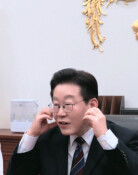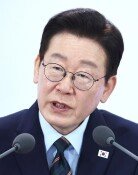[Op-Ed] Joint Front vs. Corporate Restructuring
[Op-Ed] Joint Front vs. Corporate Restructuring
Posted May. 28, 2009 08:06,
Twenty representatives from 15 unions of Hyundai Kia Automotive Group affiliates issued a joint statement yesterday on conducting a collective struggle against corporate restructuring at the groups headquarters in southern Seoul. If restructuring is carried out unilaterally, we will react with a strong struggle, the statement said. The unions have thus established a joint front against corporate restructuring, and have also urged major shareholders to keep their pledge to contribute to society and major and special stakeholders to donate their personal assets. The unions are apparently pressing major shareholders and their families under the guise of social contribution in fear that their opposition to corporate restructuring will be viewed as selfish.
The conglomerates affiliates in 1994 joined hands for wage a collective struggle for the first time since the dissolution of the Federation of Hyundai Trade Unions, a union confederation of Hyundai affiliates. Based on the judgment that individual unions were not strong enough to negotiate with management, the confederation took the lead in wage negotiations. Then Labor Minister Rhee In-je invoked arbitration rights to break the joint front and wage negotiations were carried out at each affiliate. Though another joint front was forged, collective bargaining is conducted at each affiliate because each has a different restructuring plan.
A seismic shift is happening in the global car industry. In the face of the drastic fall in car sales, carmakers that conduct successful restructuring will survive. General Motors filing for bankruptcy protection appears inevitable because it failed to make progress in negotiations with creditors over the debt-for-equity conversion yesterday, five days before the restructuring deadline June 1. If the largest U.S. automaker goes bankrupt, massive restructuring and selloffs of certain factories will follow. Hyundai Kia unions should learn from GMs experience. GM attempted to avoid restructuring but now faces more severe and sweeping restructuring.
If GM goes under, the U.S. government will revive the company as a competitive automaker by injecting massive public funds and carrying out comprehensive restructuring. Hyundai Kia must brace for fierce competition with a strong new GM for its survival. Given this, this is no time for Hyundai Kia unions to be complacent about a temporary rise in the groups U.S. market share, refuse restructuring and demand wage increases. The automotive group has a bleak future if no progress is in management-labor strife while its competitors sharpen their competitive edge.
Editorial Writer Park Yeong-kyun (parkyk@donga.com)





![[단독]폴란드, 韓 해군 최초 잠수함 ‘장보고함’ 무상 양도 안받기로](https://dimg.donga.com/c/138/175/90/1/wps/NEWS/IMAGE/2026/02/27/133437397.1.jpg)

